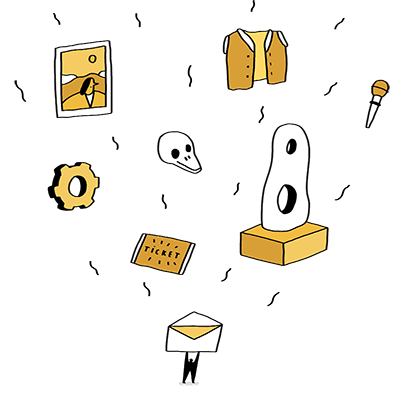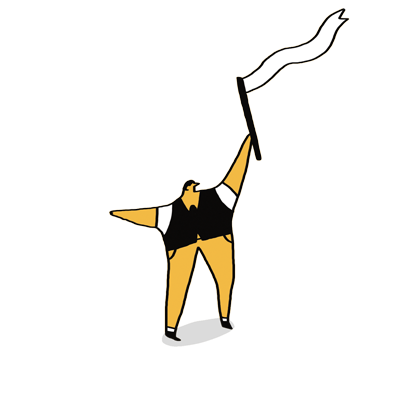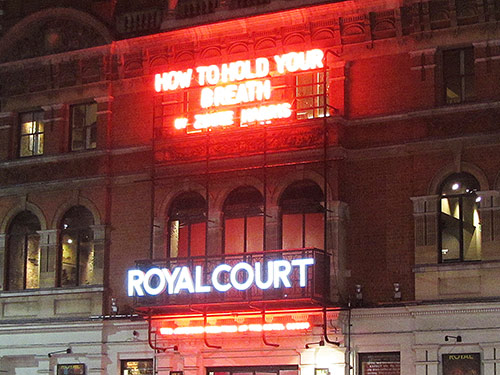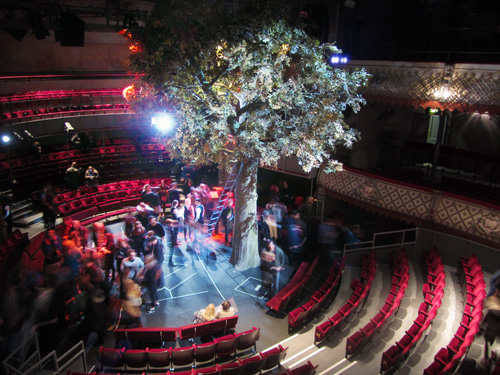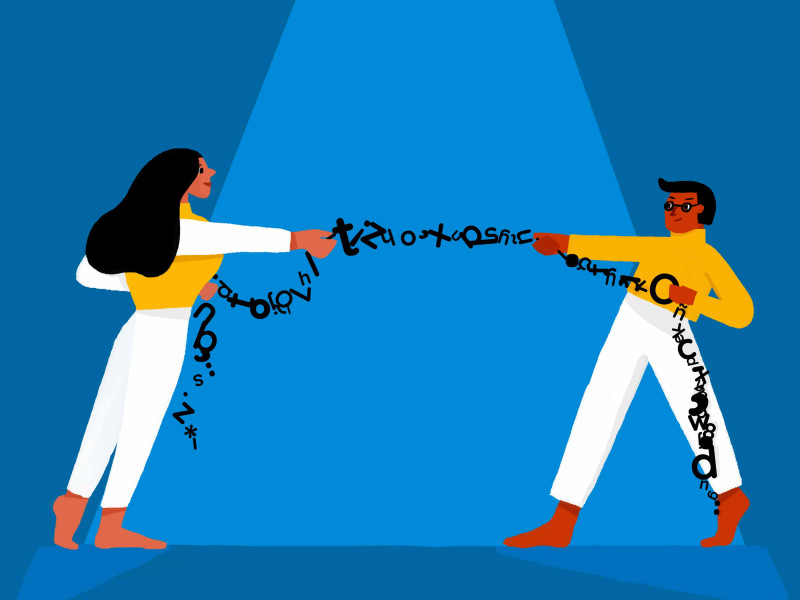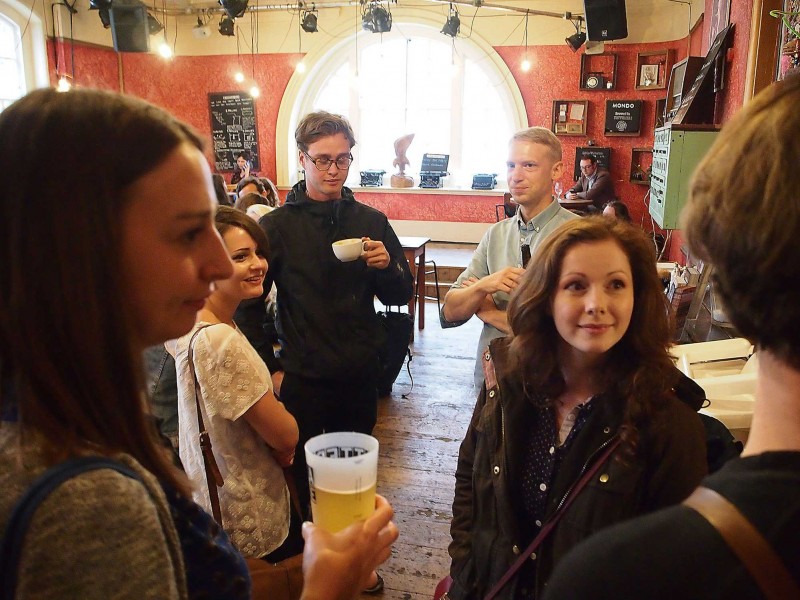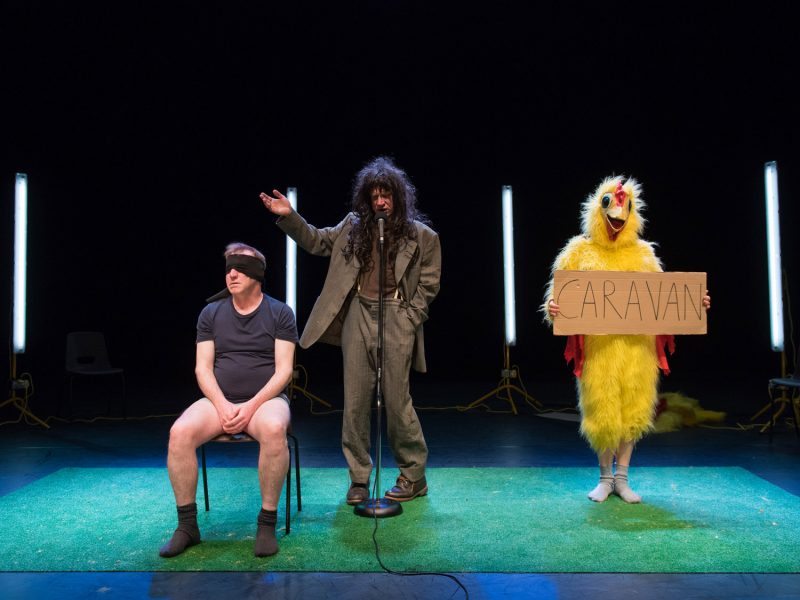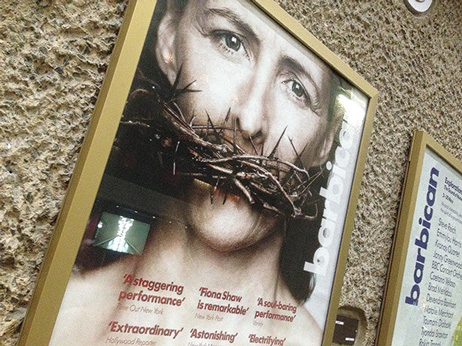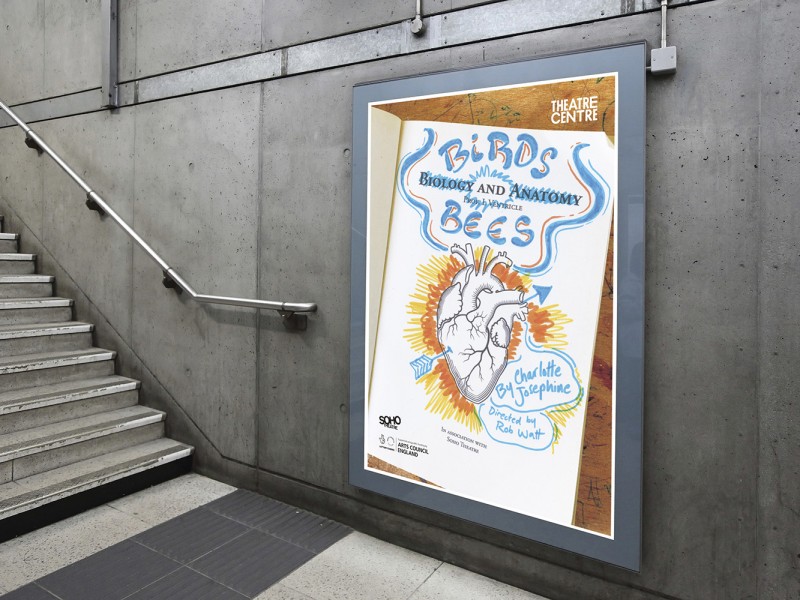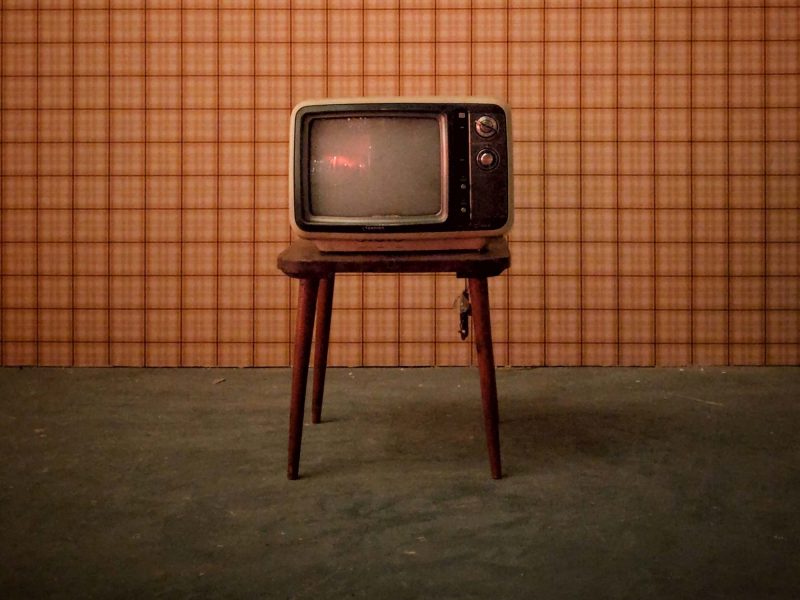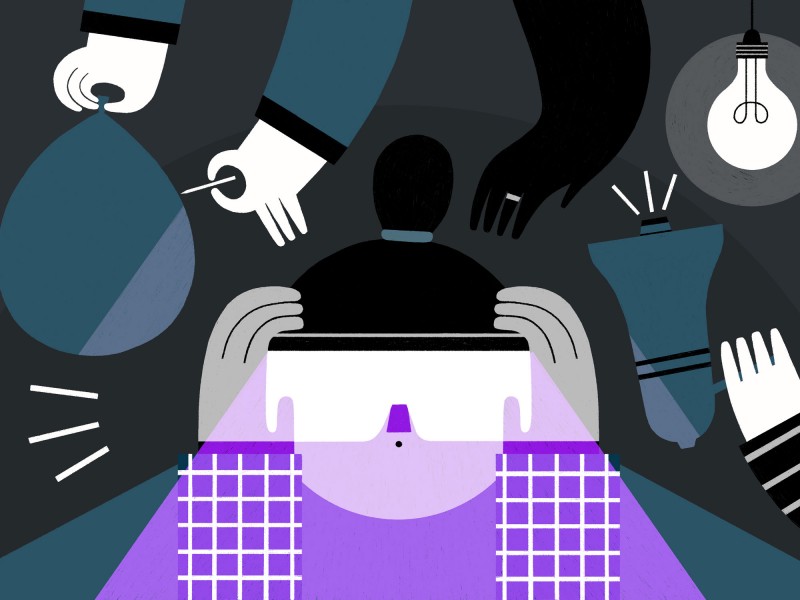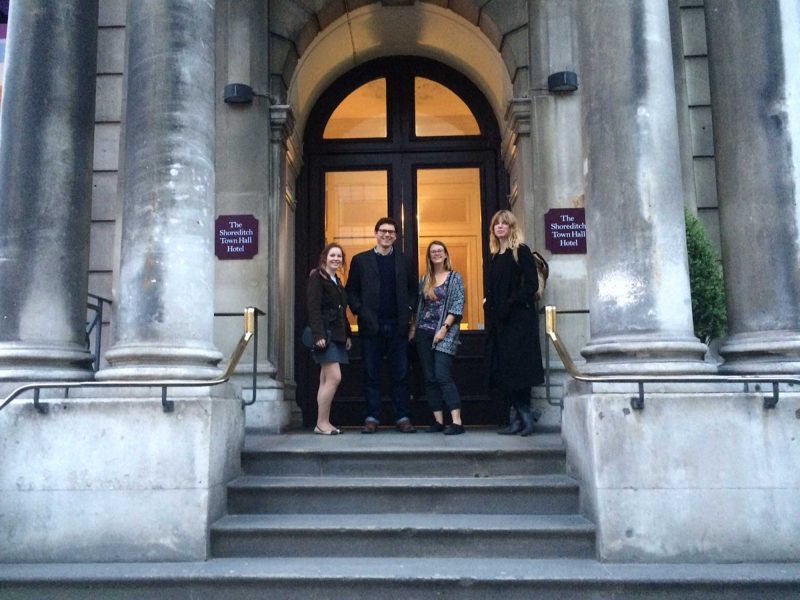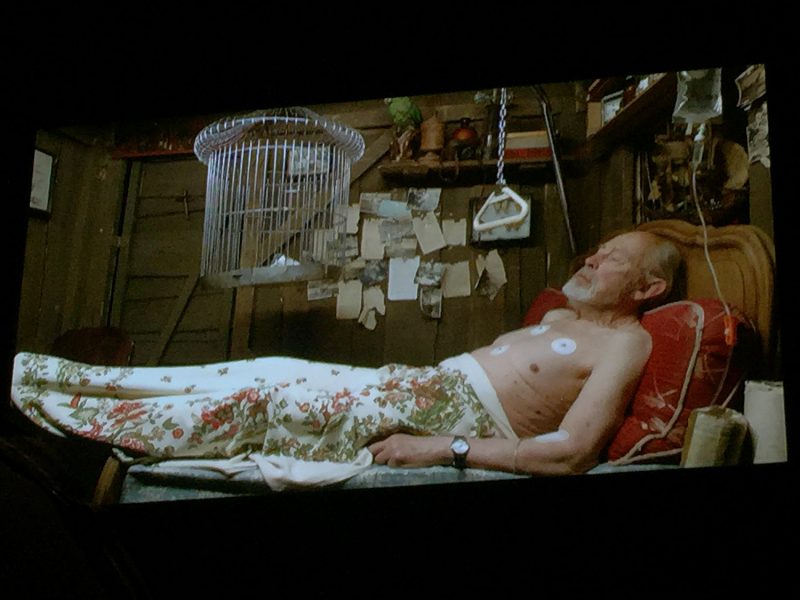For our November Cog Night we went to Battersea Arts Centre to see The Notebook by Forced Entertainment. Michael can’t stop thinking about it.
The Notebook at Battersea Arts Centre
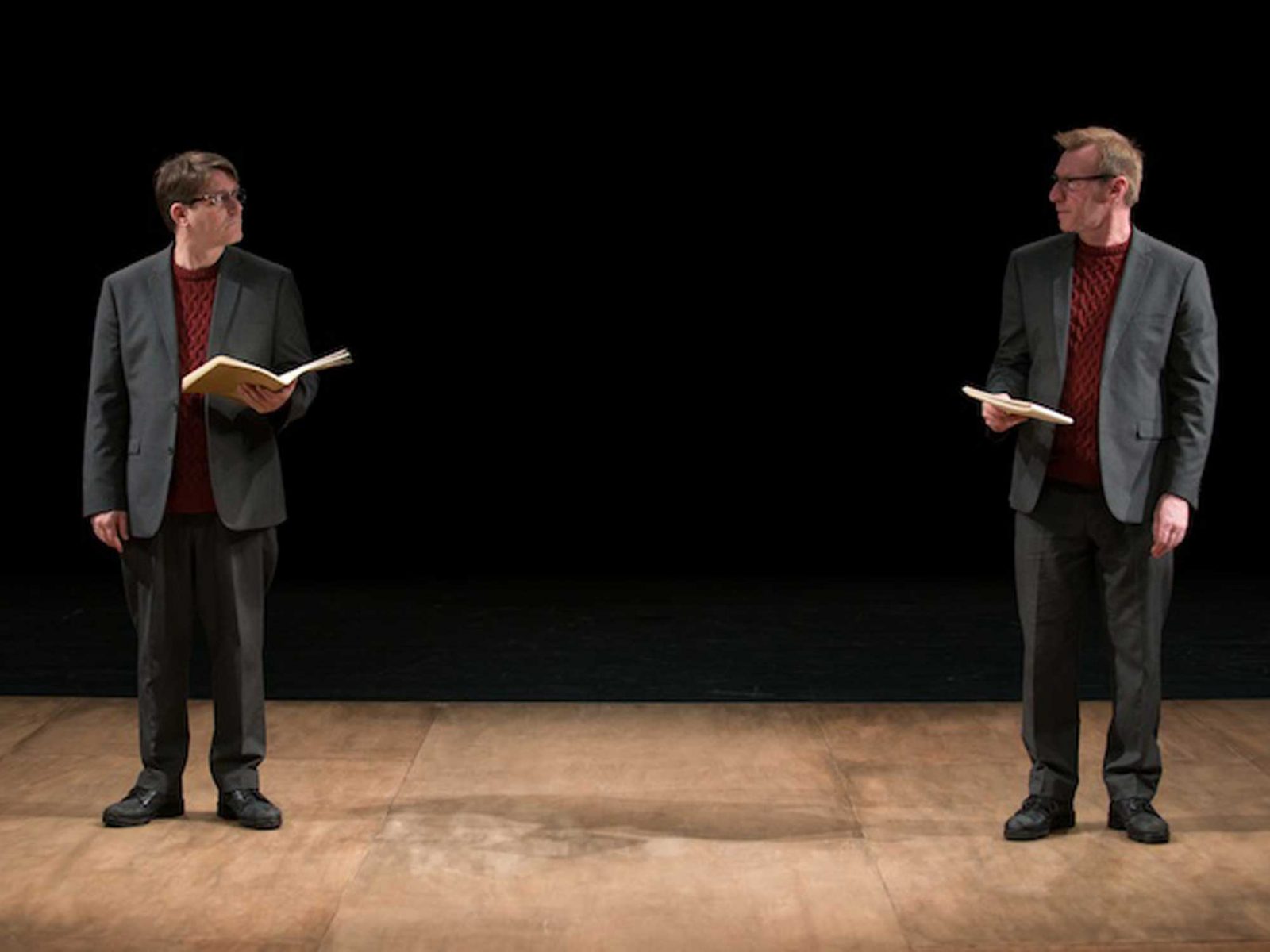
It’s a few days since I saw Forced Entertainment’s staged reading of The Notebook. I’m not sure that a waking hour has passed without me thinking about it. I can’t shake the images from my mind – scenes that are so depraved that I’ve judged them inappropriate to detail in this journal.
What’s strange is that the show didn’t have any images. All the pictures were created behind my eyes and that’s where they’re fixed. The staging (under Tim Etchells’ direction) is pared back to a pair of wooden chairs on a blank stage. Two actors, dressed identically in maroon turtle-neck jumpers and grey suits read from books, sometimes alone, often in unison, occasionally changing their mirrored position to mark a new short chapter. The only theatrical concession is subtle changes to the brightness of the lighting.
The Notebook is a 1986 novel by the Hungarian writer Ágota Kristóf who was a child in WWII and fled to Switzerland during the years of post-war suppression by the Soviets.
The story begins with twin boys being brought, by their impoverished mother, to her mother’s fairytale cottage on the edge of a forest.

Photo: Hugo Glendinning
But the forest is not enchanted it is verboten. Its darkness hides a military encampment that we gradually realise to be a Nazi death camp. Grandmother is not a kindly matriarch, she shows loathing for her daughter and contempt to the twins, who she refers to as ‘sons of a bitch’ throughout.
The twin boys are creepy and sociopathic, dependent on each other and inseparable in their actions. They record their deeds in the notebook, using unnervingly adult idioms and words revised from their absent father’s dictionary. They hide the notebook and dictionary in the attic, which they make a refuge by denying access to grandmother.
They describe the rules of their writing: they show no emotion, there are no subjective phrases for interpretation, just facts.
They recount their hardened lives and the ways that they trained themselves to be impervious to pain – emotional and physical. They are devoid of sentimentality or self-pity.
But they are not the monsters of the piece. Their untainted perspective gives them clarity to see the cruelty of the people around them. They simply cannot understand the prejudices and selfishness that surrounds them. They seek out ways to help those who their society has rejected.
In the dying days of German occupation they are disabused of any notions of humanity and as the Nazi forces scatter, the Soviets suck into the vacuum and fill the void.
Over the course of two and a half hours their matter of fact telling, of the facts that matter, is heartbreakingly insightful, disturbing and unforgettable.
